
17 minute read
COLIN POWELL
THE FLAWED TITAN
Maarten Hoffmann looks at the life of Colin Powell –former US Secretary of State, diplomat, statesman and four-star general – who passed away in October at the age of 84
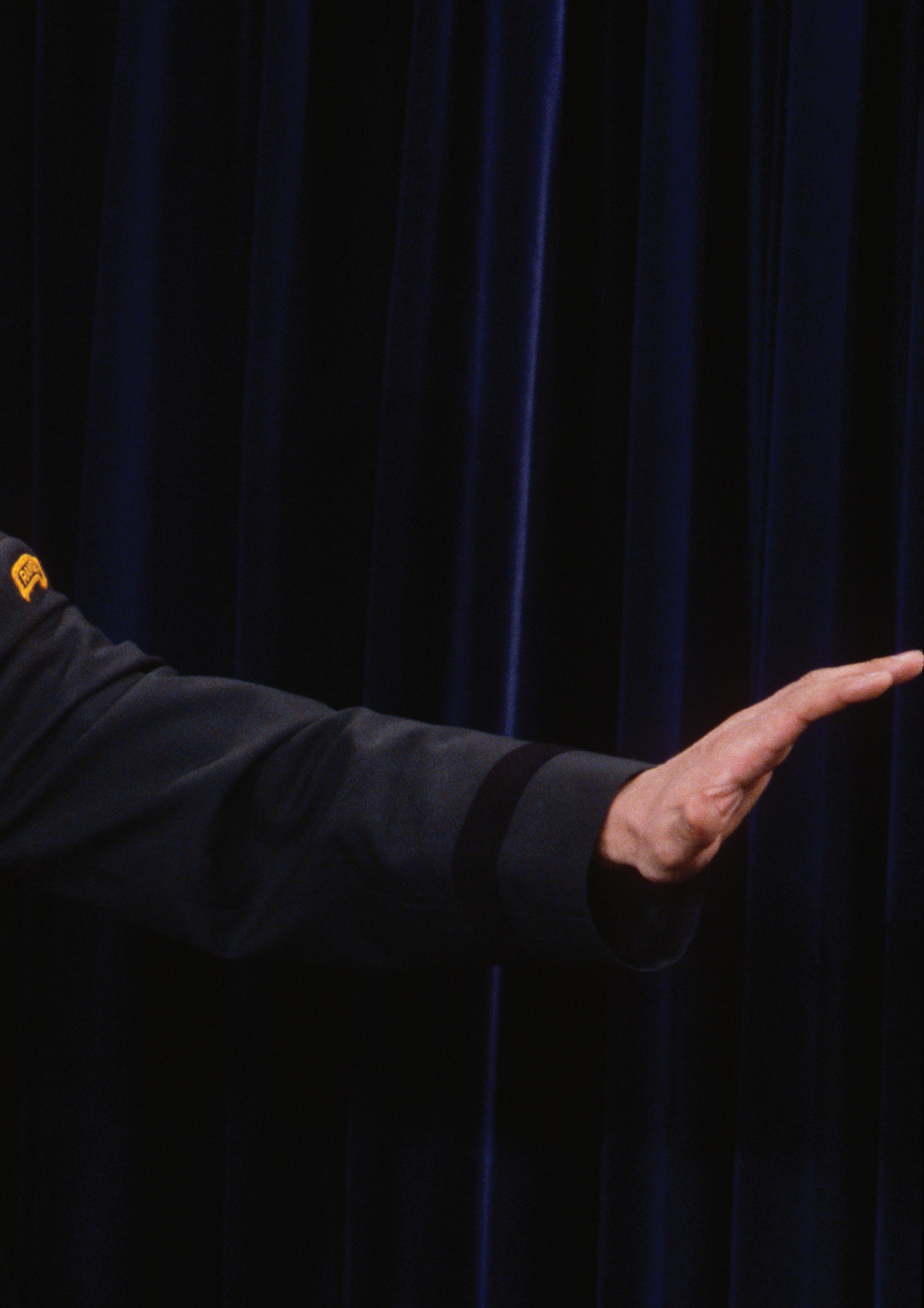
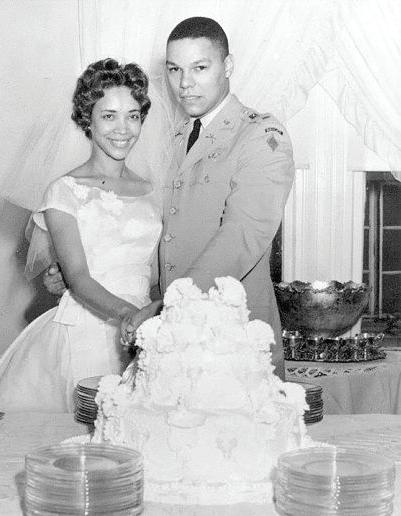
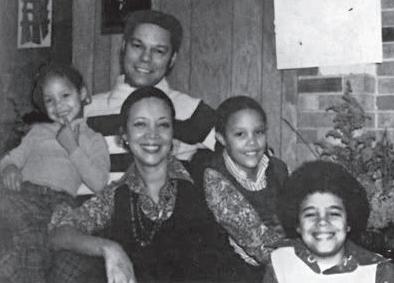
A child of working-class Jamaican immigrants in the Bronx, Colin Powell rose from neighbourhood store clerk to warehouse floor-mopper to the highest echelons of the U.S. government. It was a trailblazing American dream journey that won him international acclaim and trust.
It was that credibility he put on the line in 2003 when, appearing before the United Nations as US Secretary of State, he made the case for war against Iraq. When it turned out that the intelligence he cited was faulty and the Iraq War became a bloody, chaotic nightmare, Powell’s stellar reputation was damaged.
Still, it wasn’t destroyed. After leaving government, he became an elder statesman on the global stage and the founder of an organisation aimed at helping young disadvantaged Americans. Republicans wanted him to run for president but after becoming disillusioned with his party, he ended up endorsing the last three Democratic presidential candidates, who welcomed his support.
For many Iraqis and others, Powell will forever be associated with that 2003 speech and the bloodshed that followed. But with Powell’s death from Covid complications at age 84, Republicans and Democrats remembered him as a historic figure, a groundbreaking soldier-turnedstatesman, the first black secretary of state and first black chairman of the Joint Chiefs of Staff.
Powell rejected comparisons between himself and previous icons like George Marshall, the World War II general who became America’s top diplomat. But he embraced a local-kid-does-good narrative that reflected his humble roots.
He was fond of recalling his youth in the Bronx, working first as a clerk in a neighbourhood store and then as a sweeper in the massive Pepsi-Cola plant directly across the East River from the United Nations headquarters,
Top left: Colin married Alma Johnson on August 25th 1962 Top right: With their children, Michael, Linda and Annemarie
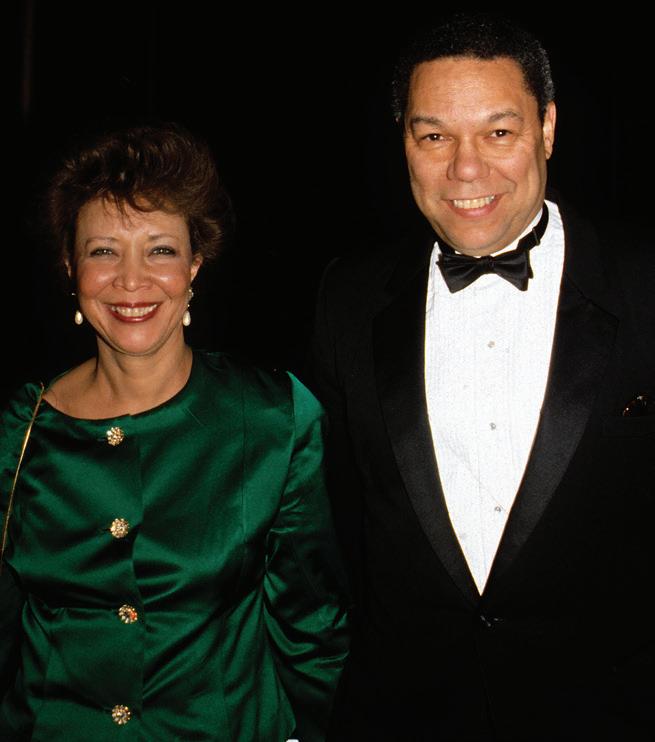
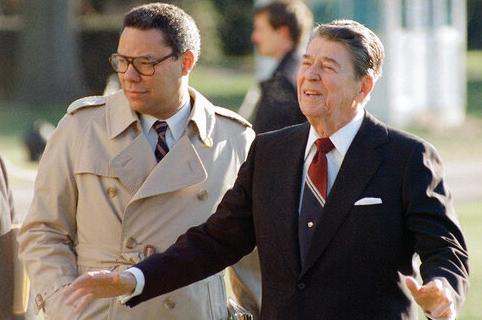
a job he frequently referred to in meetings at the United Nations. A geology student at City College of New York, Powell made clear that he found his calling in the Reserve Officer Training Corps or ROTC, which would initiate his 35-year career in the Army.
Powell served two tours in Vietnam and rose through the ranks with various stints in Cold War-era Europe before President Ronald Reagan tapped him as his national security adviser. President George H.W. Bush then appointed him chairman of the Joint Chiefs of Staff, where he oversaw the ousting of Saddam Hussein’s Iraq from Kuwait in 1991. It was then that the “Powell Doctrine” emerged; it was a strategy for the use of American military power that relied on the deployment of overwhelming force and a clear and defined exit strategy from conflict.
Powell held the Joint Chiefs of Staff position into the Clinton administration, where he recalled arguments with Cabinet members over military intervention in the Balkans, which Powell believed was unwise. “I thought I would have an aneurysm,” Powell wrote in a memoir about a White House incident in which then-U.S. Ambassador to the United Nations Madeleine Albright asked what good the armed forces are if they were never used. Powell ended up succeeding Albright as secretary of state in 2001.
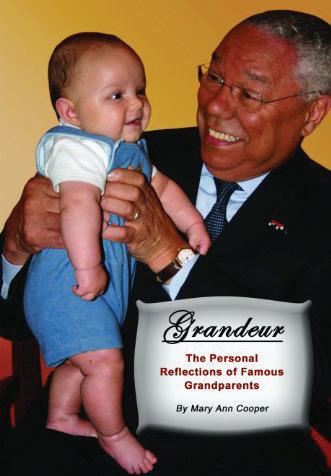
And while his military career had taken him from the minefields of Vietnam to West Germany’s strategic Fulda Gap, it was his role as secretary of state in wartime that almost did him in.
Powell was the first of President George W. Bush’s Cabinet members to publicly
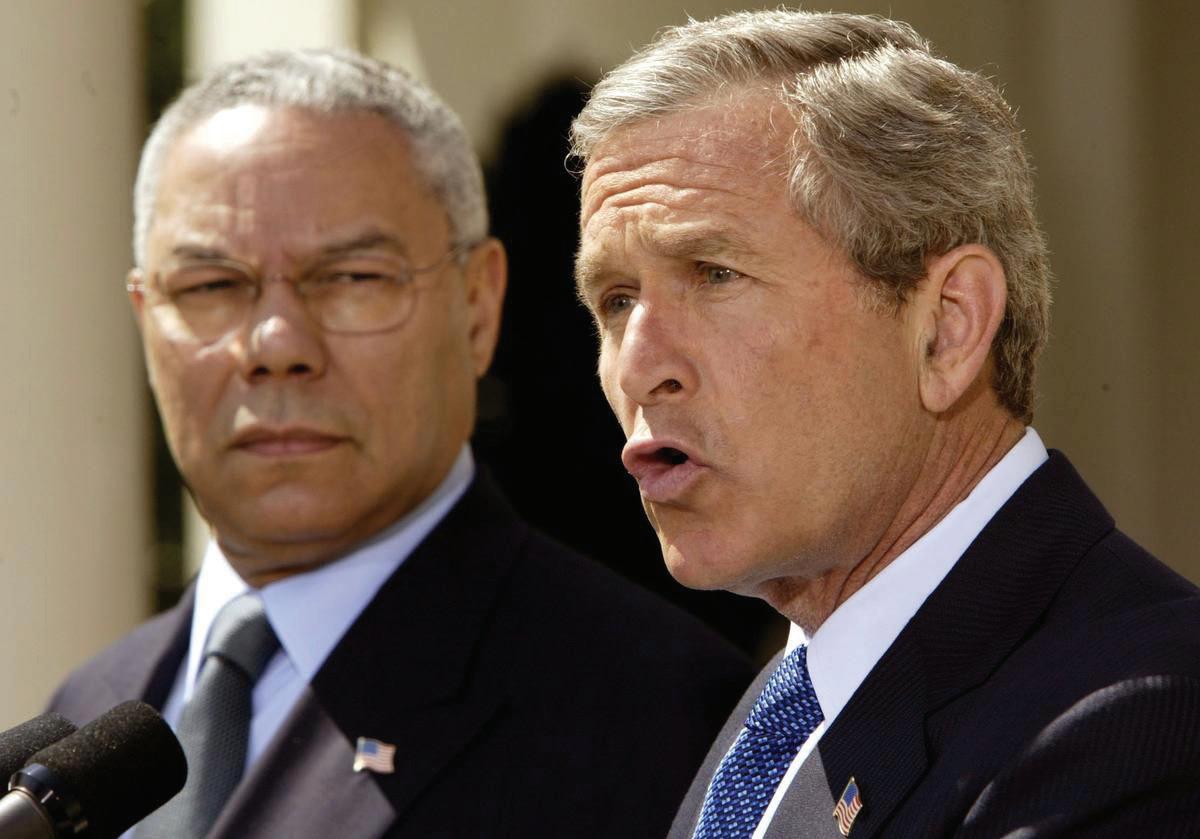
blame Osama bin Laden for the September 11th terrorist attacks and the first of Bush’s top national security aides to visit Pakistan, just a month later, to make clear to the Pakistanis that they must join the U.S.-led coalition or be labelled an enemy.
Amid significant security concerns in the aftermath of 9/11, Powell flew to Islamabad, his plane blacked-out as it went into a corkscrew landing to avoid potential rocket strikes, to tell then-Pakistani President Pervez Musharraf that his support in the operation to avenge the attacks was non-negotiable. It worked, at least in the short-term. Powell was personally skeptical of the 2003 Iraq invasion and cautioned against the war privately. But he dutifully presented the administration’s case for invasion not only in diplomatic meetings with his counterparts but also in the now-infamous speech before the U.N. Security Council in February 2003.
Confronted with widespread doubts about the accuracy of the American and British assessment of Saddam’s capabilities and intentions, many compared the stakes of Powell’s speech to be similar to those of former United Nations Ambassador Adlai Stevenson’s electrifying 1962 presentation to the council about the Soviet Union’s placement of missiles in Cuba.
In Powell’s speech — which he would later call a “blot” on his record — he brandished a vial that he said could have contained anthrax that intelligence agencies insisted Saddam was producing in mass quantities.
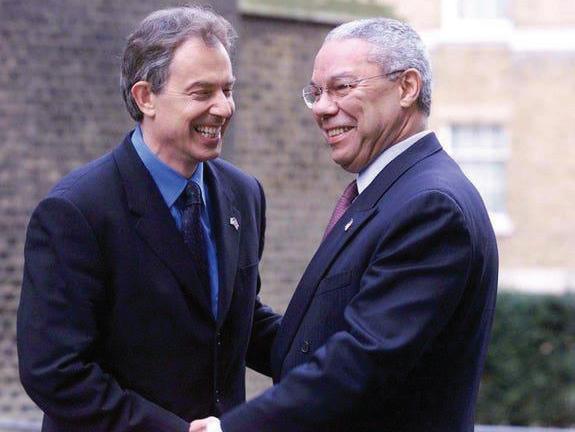
“Less than a teaspoon of dry anthrax, a little bit — about this amount,” he told the council, waving the vial. “This is just about the amount of a teaspoon. Less than a teaspoonful of dry anthrax in an envelope shut down the United States Senate in the fall of 2001.”
Some, including several critics of the Bush administration, believed Powell had hit the mark, but unlike Stevenson 41 years earlier, whatever convincing he accomplished was quickly erased. No anthrax or, in fact, any weapons of mass destruction were found in Iraq after the end of the war, which led to a protracted U.S. military occupation of the country that many believe resulted in a broader destabilisation of the Middle East, including the rise of the Islamic State, that persists to this day.
While he will always be associated with the Iraq War, Powell was not an unaccomplished diplomat. He oversaw the resolution of the Bush administration’s first foreign policy crisis, China’s force down of a Navy spy plane and the detention of its crew, and self-deprecatingly referred to successes in resolving a spat with Moscow over a Russian ban on U.S. chicken imports and an armed dispute between Morocco and Spain over a small Mediterranean island.
Powell was also critical in engineering an end to a standoff between Israel, and then-Palestinian leader, Yasser Arafat who had been blockaded in his Ramallah headquarters by Israeli troops during the second “intifada” or Palestinian uprising. And he was the first senior U.S. official to visit Afghanistan after the Taliban were ousted, flying into Kabul on a military plane in January 2002, to meet with then-President Hamid Karzai.
Nonetheless, Powell’s biggest legacy at the State Department may be bureaucratic rather than diplomatic. A natural tinkerer who loved to collect and repair old Volvos and was a fan of the then-new Chrysler PT Cruiser, Powell pushed to bring the department’s antiquated computer and communications systems into the age of email and interoperability. He fought budget battles to increase diplomatic spending and hiring and also led a successful drive to prevent the newly established Department of Homeland Security from entirely taking over the process of issuing visas, something that had been recommended in the wake of 9/11.
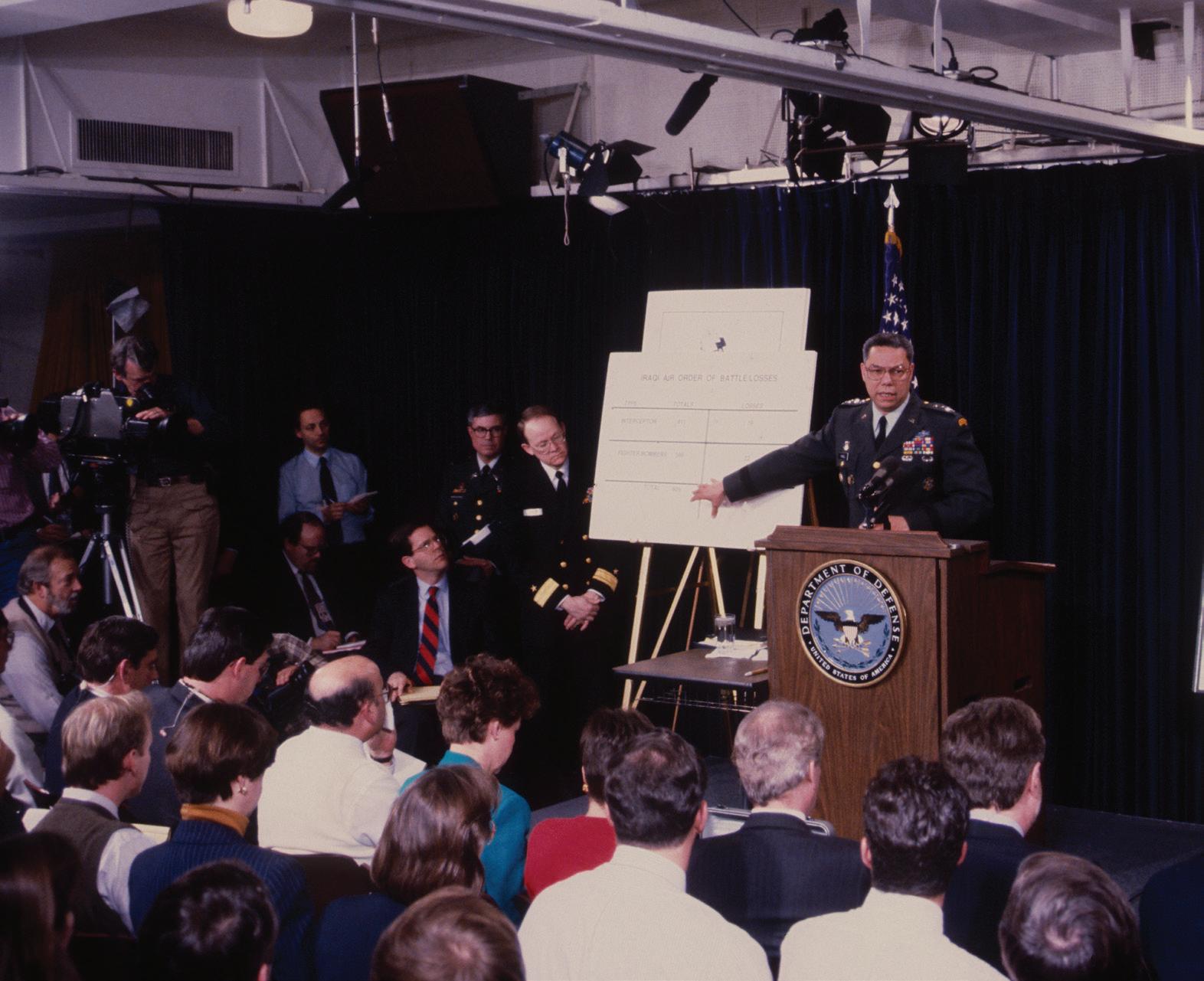

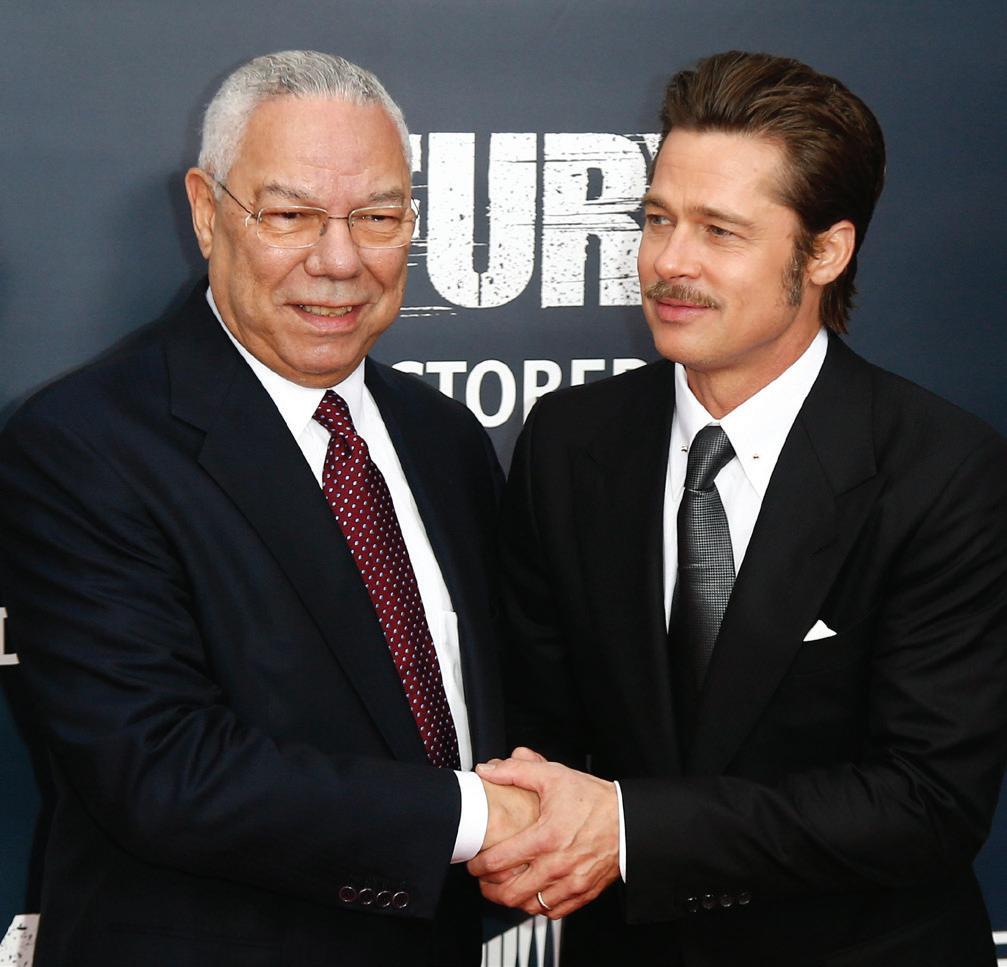
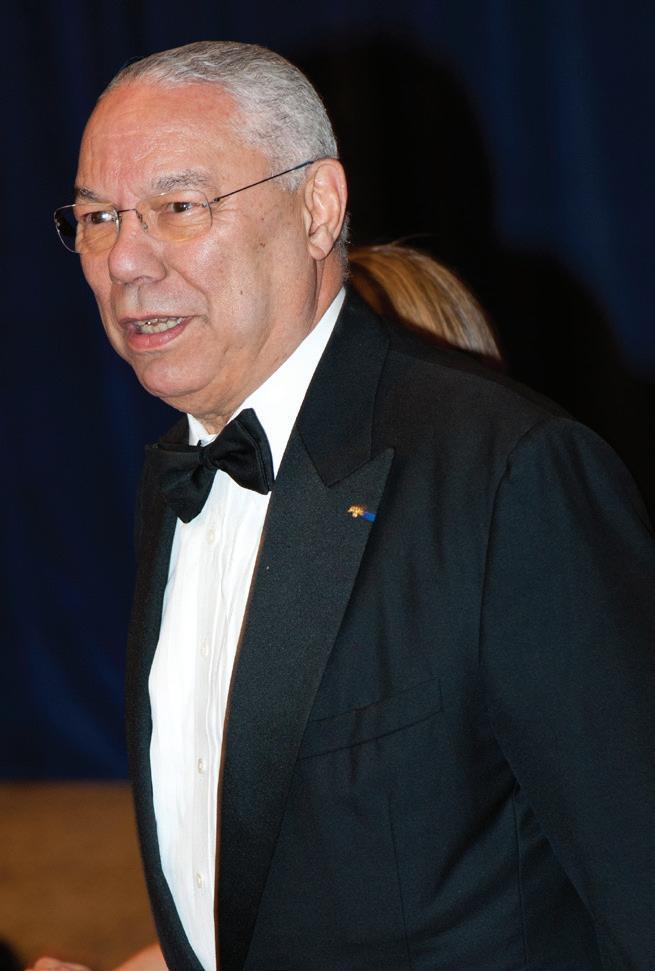
Unlike his predecessors and several successors as secretary of state, Powell was not enamoured of foreign travel and spent less time overseas than almost any of America’s top diplomats since the dawn of the jet age, an aversion perhaps exacerbated by his unsuccessful behind-the-scenes attempts in Washington to blunt his Bush administration colleagues’ push for war with Iraq.
Personable and often approachable, Powell sought to assure his new employees that he would not be a burden on them in some of his first remarks to the diplomatic corps.

“I will be around to see you in due course,” he told his first town hall meeting. “I am an easy visitor. We are going to try to make it very easy for me to visit. Just to save a lot of cable traffic, I have no food preferences, no drink preferences. A cheeseburger will be fine. I like Holiday Inns, I have no illusions.”
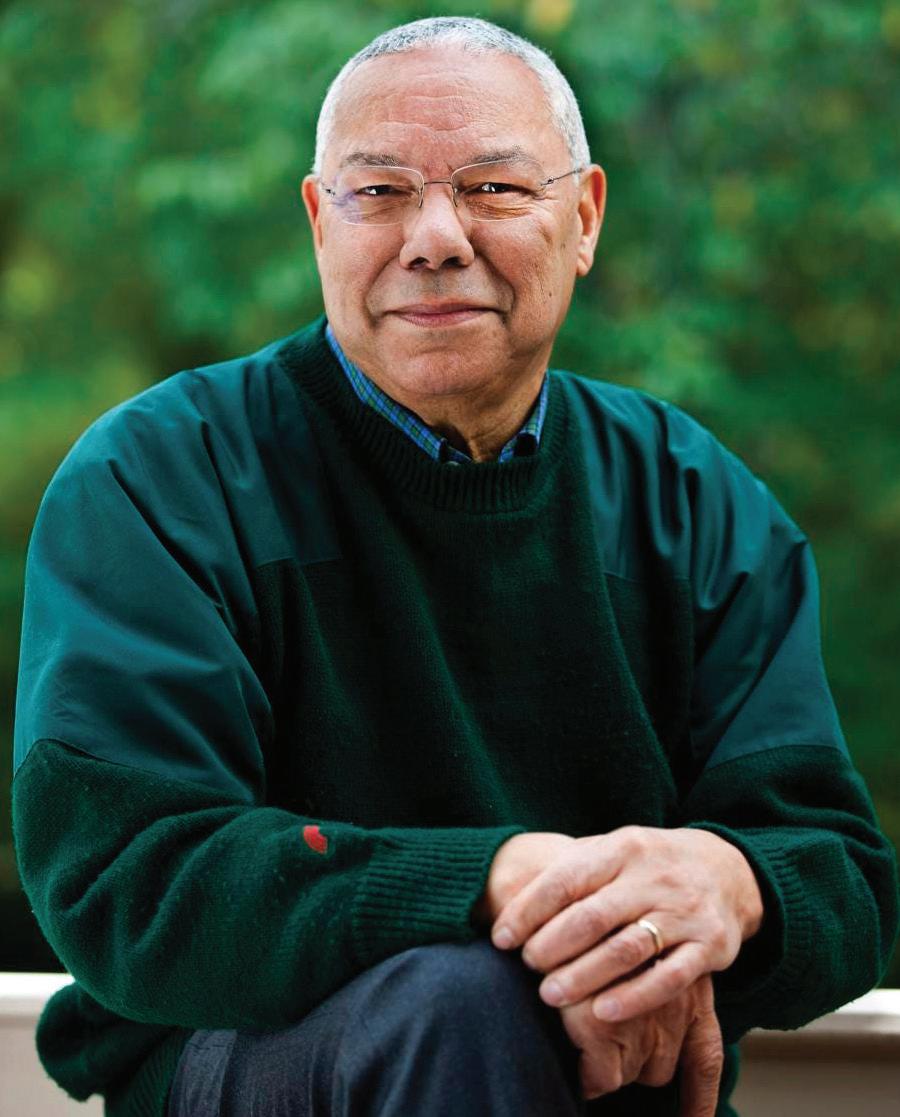
LOCAL PRESENCE, NATIONAL STRENGTH
Brewin Dolphin is a wealth management company with over £55 billion worth of investments under their management. The company’s reputation is stellar and l was keen to learn more so l sat down with Directors, Lee Clark, Paul Cannons and Mike Ast at their new offices at Gatwick Airport to learn more about the company. By Maarten Hoffmann
Lee Clark Paul Cannons Mike Ast
So, who is Brewin Dolphin?
Brewin Dolphin is a wealth management business that started in 1762 with three core elements to the business – private clients, clients of intermediaries and we have an award winning charity team. The perception of the company is that of a high-end brand but, in fact, we work with clients from £2,000 and beyond so we work with all manner of clients on their wealth planning journey. Whether that is the early stage of client acquisition of wealth or experienced clients, we have a home for them. We are independently owned and a FTSE 250 company, and a UK business, therefore we truly are a local business with national strength. As a firm that manages over £50 billion of client assets we are a safe harbour for a wide variety of client funds.
I am surprised at the £2,000 entry level as l think the perception of wealth management is that l need a million or two to work with you.
Different clients have different entry points and the client with £2,000 today might have £2 million next year and we want to be their trusted partner on that journey. We call it the Spectrum of Yes. One of the great things about the busi ness are the families we work with through the generations. A meeting only this morning was with three children of a long-term client who has sadly passed away and that prompted their children to come to us to discuss their inheritance planning and we hope in the years to come that their children will take the same journey with Brewin Dolphin. This is a testament of the strength and knowledge of this company that generations of clients return to us and we all thrive on the huge satisfaction derived from such great word of mouth recommendations.

You have been with the business for 28 years Paul, you must have seen significant generational change?
Indeed, l saw a client last week whose grandfather first started working with the firm in the early 70’s, l have been working with him for the past 20 years and now l am working with his children which is hugely satisfying but we are just custodians of the brand, charged with passing it on in a better condition than when we started and with that sentiment, the brand is secure for generations to come.
One of the major parts of our role is not just to buy X or sell Z, it is to act as financial educators to ensure that our clients make the right decisions, and fully understand the advice we are giving them. I have one particular client who has been with me for over 25 years and at the start, he had little financial knowledge and relied solely on my advice. Since then we have worked together and at each turn, l fully explain not just what l am recommending but why and he now has knowledge probably equivalent to mine and that is so satisfying.
You do have a huge responsibility in your roles. You are holding the entire wealth of many of your clients and their families – does that weight on you at times?
It weighs on us all the time and so it should. At all times the client comes first. The only consideration is ‘is this right for the client’ and with that ethos, we can’t go wrong.
Inheritance tax (IHT) is hated by many people as a tax on a tax. I presume much of what you deal with is eventually inheritance, are there ways to minimise the IHT of such wealth?
Absolutely and our job is tax mitigation in those circumstances – not avoidance but mitigation. IHT is a tiny part of government tax revenue, data provided by the OBR shows revenue currently at 0.6% or 0.2% of national income but it does indeed get a very bad rap. As a South East business in this office, dealing principally with Sussex, Surrey and Kent, this is a real problem. Go further north where property prices are not so high, it is not such a major issue but in all instances, it is quite a good problem to have. There is still the seven-year rule of asset disposal before death, with certain caveats, and in that instance, it is our job to ensure the clients mitigate the tax payable and pass as much down to the next generation as possible. We also get some very specific demands, such as school or university fees. A grandparent might want to assist their grandchildren through private school or university and they want advice on the most effective manner to do this. Meeting client’s financial objectives or achieving a client’s financial goal is part of the job and we are proud to say we have an excellent track record.
❛❛ As a business that manages over £55 billion of client assets we are a safe harbour for a wide variety of clients’ funds ❜❜
Where is the sweet spot at the moment? I hear ESG (Environmental, Society, Governance) investments have really picked up with the desire to ethically invest. Is that a large part of the business?
Absolutely. The market has really developed lately as people feel that their investments must prove to be good for humanity and good for the environment and that investment has great power. It’s a space we are keen to be in and is certainly being driven by our clients. The problem is that claims over sustainability differ among wealth managers, and this grey area increases the risk of greenwashing. In Brewin Dolphin, we want to work with real, proven ESG managers that our clients can have total faith in.
We want to invest in companies that will still be there in 30/50 years’ time, companies that are really making a difference but crucially for our clients, companies that can offer good, secure returns with great peace of mind.
I have the impression that clients might have to sacrifice a few percentage points for the luxury of ethically investing – is that right?
No, not necessarily. ESG investments are, in many instances, offering equivalent or better returns than traditional companies these days. However, some ESG constraints can mean that certain products are slightly more expensive or may even underperform in the shorter term. It used to be that we had what was called Negative Screens, therefore no investments in alcohol, arms, oil etc but what has changed over the past years is that clients no longer want to just avoid the bad but they want to actively seek out the good. So we now have Positive Screens that seek out ethical companies with a great track record. What these companies need is investment to move forward, and much of that comes in the form of ESG investment. There is a pervasive myth that clients have to sacrifice performance for ethics and that is just not true. We have a wide array of ESG vehicles that are outperforming traditional investments and this will only increase as the years go by. Some clients don’t want full ESG integra tion with the feeling that they will dip their toe into the waters and see how things go, a more hybrid model but more and more clients have studied the market and are fully in to the ESG market and making some very good returns.


As the younger generation come through and naturally have more of a concern about the environment and ESG investing, l assume this section of your client base is steadily increasing?
Yes and not just them. Often we have children talking to their parents about their portfolio, convincing them to shift a portion of it into ESG funds so this is a massive positive for ethical investing.
What are the main sources of client wealth?
It tends to be inheritance, business success, accrued savings or winning it. Brewin Dolphin has a long-term relationship with the Lottery operator, Camelot, in advising their winners. Business success is also highly rewarding when we start with a client with a lower investment value and we work with him/her as the company grows. I have a client who we started work with many years ago on an investment portfolio of £40,000 and she and her partner are about to sell their company for £2.6 million. Never ignore the acorns of today if you want the oak trees of tomorrow.
So, what keeps your clients awake at night?
With the worrying last 18 months we have endured, there are lots of concerns but l guess the main focus is on ‘when is the next financial crash going to happen?’. Obviously we don’t have a crystal ball but sound preparation for that type of eventuality is diversification. Diversify the portfolio, know the market, know your client and minimise any issues with such things. After all, that’s our job.
Many clients worry about protecting their wealth for the future generation and not making mistakes that could jeopardise their heirs’ future. That is the very reason many clients come to Brewin Dolphin as we have a stellar reputation for sensible investments, for sound advice and a strong reputation for protecting our clients. Like the swan analogy, we are peaceful and calm on the surface but peddling furiously under the water to protect our clients.
What keeps the financial advisor awake at night?
Our client’s security. We aim to get it right, protect and increase their wealth and do so successfully that they recommend us to their friends and relatives – generation after generation. Thankfully, we all sleep very well most of the time.
We also believe strongly in financial literacy and indeed, we run financial literacy workshops for clients to ensure they have a strong understanding on what we are recommending. We advise on things such a university fees as we found that a large number of clients greatly underestimate the true costs, so we are financial advisors, financial managers and financial educators and that is extremely rewarding for all of us at Brewin Dolphin.
And it often goes further than that. I recently had a long-term client, who had become a friend, who was diagnosed with liver cancer and on his death bed, he asked to see three people - his wife, his brother and me. All he said to me, referring to his wife, was ‘look after her’. He knew that’s all he had to say and l have looked after her ever since as l see it as a rock solid commitment to that client and his wife, who is now the client. Anctodley a significant proportion of children replace their parents wealth advisor upon their death. Our strongest advocates for our brand are our existing clients and we never forget that.
❛❛ So now we have Positive Screens that seek out ethical companies with a great track record ❜❜
Source https://obr.uk/forecasts-indepth/tax-by-tax-spend-by-spend/ inheritance-tax/ - referenced 14/10/2021










